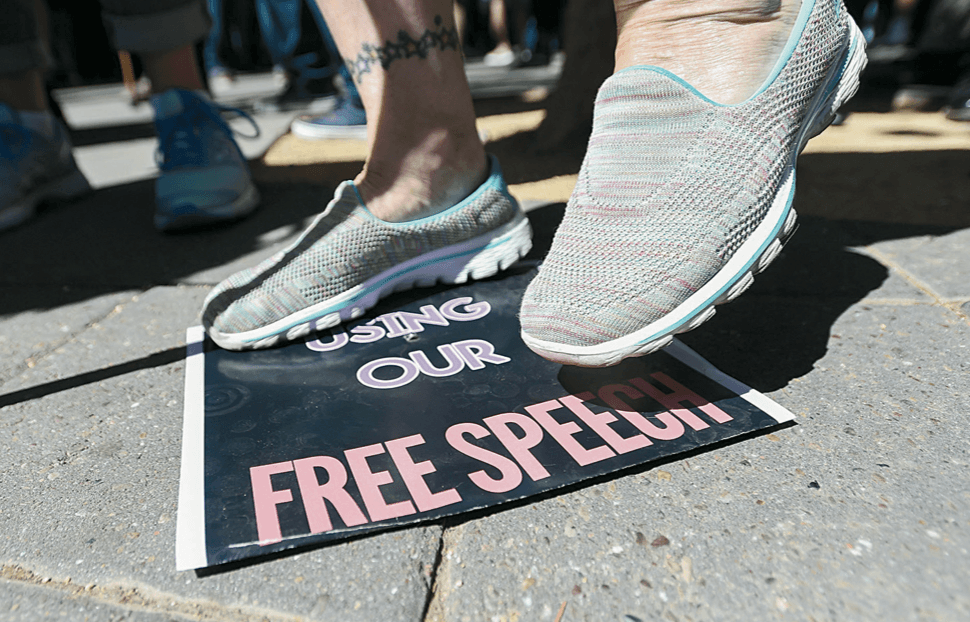Half of the public is against students “no-platforming” controversial speakers at British universities–but younger people are less likely to oppose the practice than older adults, a survey suggests.
More Britons think people are too easily offended (55 percent) rather than believing there is a need to talk more sensitively to those from different backgrounds (42 percent), according to a study into culture wars.




